
INFORMATION TECHNOLOGY COMMITTEE
ESCB-PKI PROJECT
ESCB-PKI REGISTRATION AUTHORITY APPLICATION
MOST COMMON ERRORS
VERSION 2.0
ECB-PUBLIC
15-Nov-2021

ECB - Unrestricted
Updated - ESCB-PKI - Common errors v.2.0.docx Page 2 of 21

ECB - Unrestricted
Updated - ESCB-PKI - Common errors v.2.0.docx Page 3 of 21
TABLE OF CONTENTS
GLOSSARY AND ACRONYMS ..................................................................................................................... 6
1. Introduction .................................................................................................................................... 7
1.1. Certificate request state flow ................................................................................................. 7
1.2. Certificate state flow ............................................................................................................... 8
1.3. IAM logon: SSO and Browser session ...................................................................................... 9
1.4. ESCB-PKI application session and log-off ................................................................................ 9
2. Access to the ESCB-PKI application not granted ........................................................................... 10
1. IAM: Certificate not recognised .................................................................................... 10
2. IAM: Certificate not eligible .......................................................................................... 11
3. IAM: Revoked Certificate .............................................................................................. 11
4. IAM: No roles ................................................................................................................ 11
5. ESCB-PKI session invalidated ........................................................................................ 12
6. Generic browser error................................................................................................... 12
3. Certificate request rejected .......................................................................................................... 13
7. Certificate request rejected .......................................................................................... 13
8. New certificate request rejected .................................................................................. 13
9. Certificate renewal request rejected ............................................................................ 13
4. Certificate generation most common errors ................................................................................ 14
10. There is not a token with the serial number specified in the request ........................... 14
11. Client error downloading certificates ........................................................................... 14
12. License verification error .............................................................................................. 15
13. Error generating the keys ............................................................................................. 15
14. Error generating certificates ........................................................................................ 15
15. Error storing certificates ............................................................................................... 16
16. Invalid PIN downloading standard certificates ............................................................. 16
5. Certificate management most common errors ............................................................................ 18
17. Error reactivating a certificate ..................................................................................... 18
18. There is not a token in the reader ................................................................................ 18
19. Duplicated encryption key ............................................................................................ 18
20. Error storing certificates ............................................................................................... 19
6. Other common errors ................................................................................................................... 20
21. Invalid suspension code ................................................................................................ 20
22. Error downloading Terms and Conditions .................................................................... 20
23. Access denied ............................................................................................................... 20
24. System under maintenance .......................................................................................... 20
25. Unexpected error .......................................................................................................... 21

ECB - Unrestricted
Updated - ESCB-PKI - Common errors v.2.0.docx Page 4 of 21
TABLE OF ILLUSTRATIONS
Figure 1 - Certificate requests status flow ................................................................................................ 7
Figure 2 - Certificate package status flow ................................................................................................ 8

ECB - Unrestricted
Updated - ESCB-PKI - Common errors v.2.0.docx Page 5 of 21
Project name:
ESCB-PKI
Author:
ESCB-PKI Project team
File name:
ESCB-PKI - Common errors v.2.0.docx
Version:
2.0
Date of issue:
15.11.2021
Status:
Final
Approved by:
Distribution:
RELEASE NOTES
In order to follow the current status of this document, the following matrix is provided. The numbers
mentioned in the column “Release number” refer to the current version of the document.
Release
number
Status
Date of issue
Revisions
0.1
Draft
09.03.2012
Initial version
0.2
Draft
21.03.2012
Additional revision
1.0
Final
28.05.2012
First version
1.1
Update
27.07.2012
“Important Notice” added at the beginning of chapter 2
1.2
Update
15.11.2012
Added generic browser error
2.0
Final
15.11.2021
Compatibility with other browsers

ECB - Unrestricted
Updated - ESCB-PKI - Common errors v.2.0.docx Page 6 of 21
GLOSSARY AND ACRONYMS
Acronym
Definition
CA
Certificate Authority
CB
ESCB Central Bank (ECB or NCB)
CRL
Certificate Revocation List
ECB
European Central Bank
ESCB
European System of Central Banks, including the ECB and the NCBs of all States
member of the European Union (whatever they use the Euro or not).
ESCB-PKI
European System of Central Banks - Public Key Infrastructure
IAM
Identity and Access Management
NCB
National Central Bank
PKI
Public Key Infrastructure
RO
Registration Officer
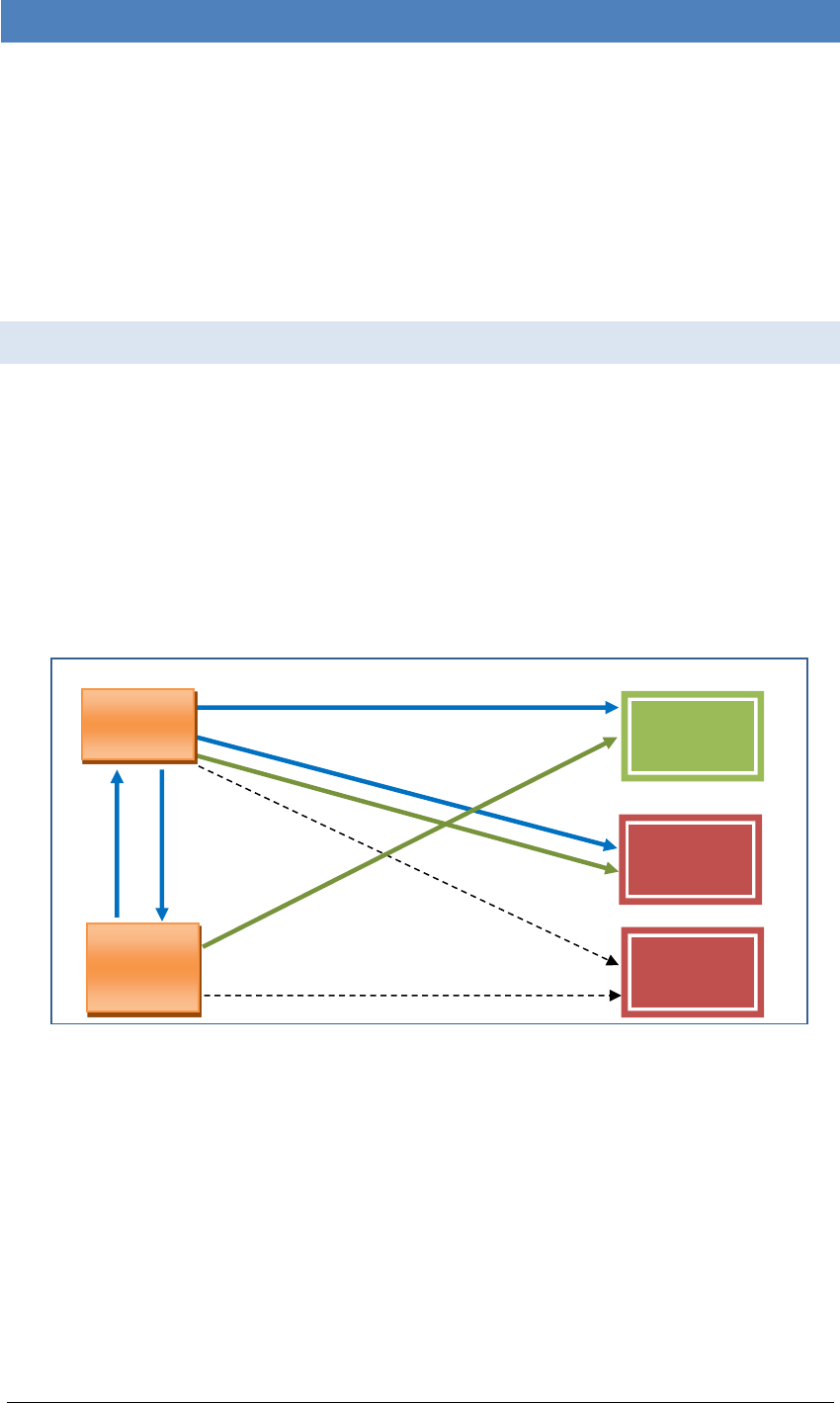
ECB - Unrestricted
Updated - ESCB-PKI - Common errors v.2.0.docx Page 7 of 21
1. INTRODUCTION
This document aims at providing information of the most common errors you could find when you are
managing ESCB-PKI certificates.
This first chapter introduces some concepts that could be useful to better understand how ESCB-PKI
requests, certificates and sessions are handled. Next chapters will depict the usual errors; this
document describes for every error the most probable causes and the actions you must undertake to
solve it.
1.1. CERTIFICATE REQUEST STATE FLOW
The status of a certificate request can be:
RO-Pending The RO shall still process the request
User-Pending The user can generate and download the certificates. The RO has already
handled the request and has allowed a remote download
Completed The request has been processed and certificates have been generated
Cancelled The request has been cancelled
Expired The request has expired
The figure below shows the flow between the different statuses for a given request:
Figure 1 - Certificate requests status flow
Line convention:
Blue Actions performed by the Registration Officer
Green Actions performed by the end-user
Black Actions performed by ESCB-PKI periodic processes (under construction)
Box convention:
Orange (Intermediate status) the request cannot remain in this status for a long period
Green (Final status) the request has been completed: certificates have been issued
Red (Final status) the request has been cancelled / expired: certificates have not been issued
Expired
User
Pending
Completed
Cancelled
RO Pending
Initial status Final status
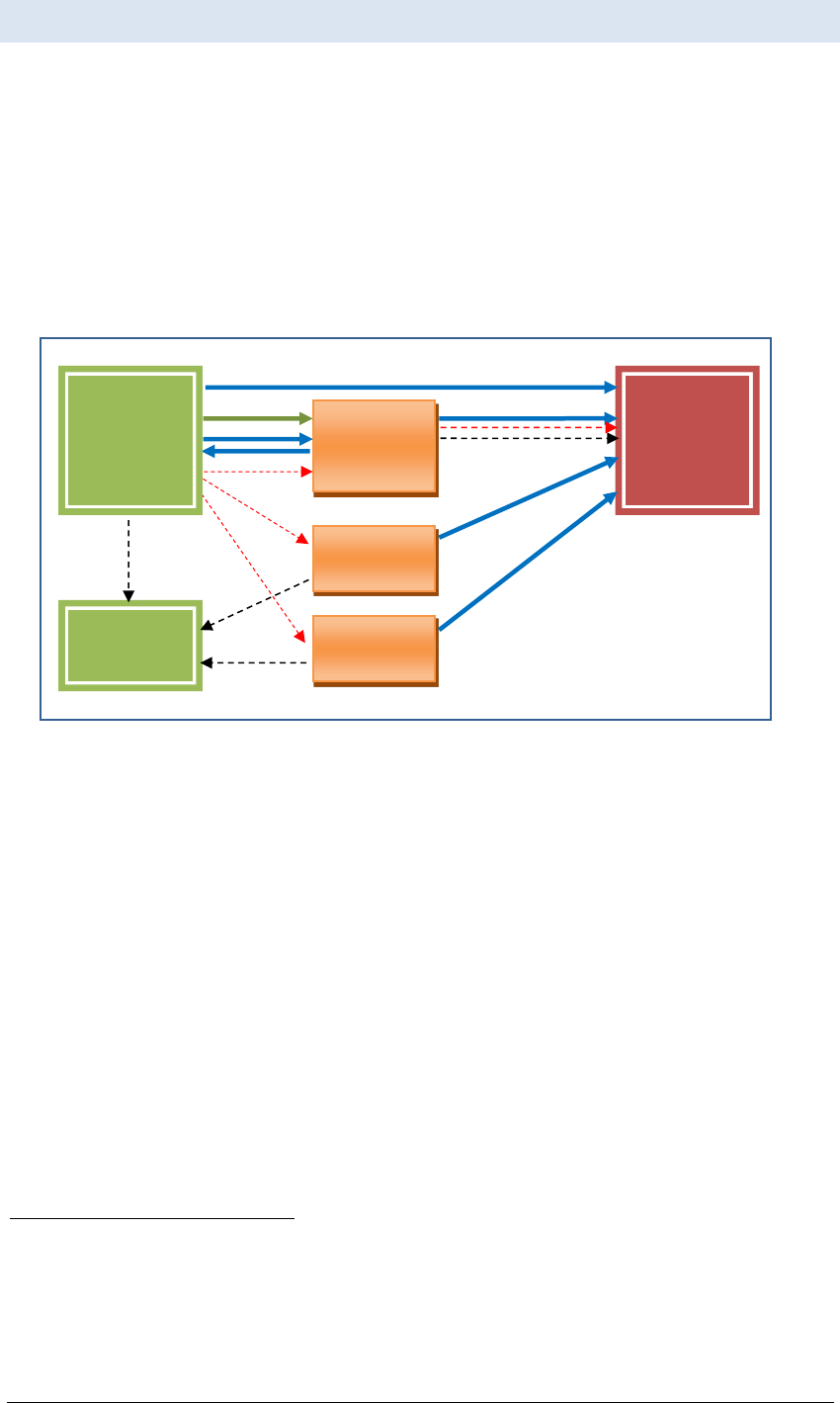
ECB - Unrestricted
Updated - ESCB-PKI - Common errors v.2.0.docx Page 8 of 21
1.2. CERTIFICATE STATE FLOW
The status of a certificate can be:
Active Certificates are valid
Revoked Certificates cannot be used any more
Suspended Certificates have been temporarily invalidated
Damaged Certificates have been replaced due to damage (e.g. broken token)
Renewed Certificates have been replaced due to expiration
Expired Certificates have expired
The figure below shows the flow between the different statuses for a given certificate:
Figure 2 - Certificate package status flow
Line convention:
Blue Actions performed by the Registration Officer
Green Actions performed by the end-user
Black Actions performed by ESCB-PKI periodic processes
Red Action automatically executed as a result of a new certificate request due to: key
compromise
1
, expiration
2
or damage
3
Box convention:
Orange (Intermediate status) the certificate will not remain in this status for a long period
Green (Stable status: initial or final) for a non-revoked certificate
Red (Final status) for a revoked certificate
1
Old certificates are initially suspended and afterwards, when the new certificate is issued, revoked
2
Status of old certificates is changed to “renewed”
3
Status of old certificates is changed to “damaged”
Initial status Final status
Final status
Revoked
Renewed
Damaged
Suspended
Expired
Active

ECB - Unrestricted
Updated - ESCB-PKI - Common errors v.2.0.docx Page 9 of 21
1.3. IAM LOGON: SSO AND BROWSER SESSION
It is very important to understand how IAM SSO works and how the browser (i.e. Internet Explorer)
manages the sessions.
When you log-in to the IAM system (providing your identity & credentials) a new session is created
(cookie session). This IAM session is linked to the browser session.
This means that once you have been authenticated by the IAM WAM to access to one application:
If you remain within the same browser session, IAM will not authenticate you again the next time
you select another application protected by the IAM WAM, therefore, the access to the new
application will be done with the same credentials you presented before.
Only if the new application needs stronger credentials (i.e. you have authenticated using a
software certificate and the new application requires advanced certificates) you will be requested
to authenticate again.
If you need to use different credentials for two applications that require the same level of
authentication (i.e. both use standard certificates), you must open a new browser session:
o In IE7 you will need to open a new explorer, but
o In IE8 (or above) you will need to explicitly choose to open a new session (by default IE8 and
IE9 will not open new session)
1.4. ESCB-PKI APPLICATION SESSION AND LOG-OFF
Apart from the IAM session the ESCB-PKI system creates another session associated to the application.
Two different sessions may be created:
One associated to the tool used by ESCB-PKI Registration Officers and other ESCB-PKI roles (e.g.
Key Recovery Officer, etc.), that is, people that have been granted a role in the system
Another one associated to the tool used by ESCB-PKI subscribers
When you log-off from the ESCB-PKI application, your ESCB-PKI session cookie will be invalidated to
avoid the risk of being used without your control. If you want to access to the ESCB-PKI tool later, you
must open a new browser session and re-authenticate.

ECB - Unrestricted
Updated - ESCB-PKI - Common errors v.2.0.docx Page 10 of 21
2. ACCESS TO THE ESCB-PKI APPLICATION NOT GRANTED
IMPORTANT NOTICE
Please, take into account that once you receive an Access error (any of the errors described below in
this chapter) you MUST CLOSE THE BROWSER SESSION AND OPEN A NEW ONE (see paragraph 1.3 IAM
logon: SSO and Browser session) before trying again.
Even though you had put in place the corrective actions, you will receive the same error if you DO NOT
open a new browser session.
1. IAM: Certificate not recognised
IAM error:
Reason:
Your certificate is not associated to a valid user-id in the IAM directory. Three main reasons can
cause this error:
a) You are not using the correct certificate.
b) Your certificate is not associated to your IAM account yet (Note: the ESCB-PKI application
sends your certificates to IAM when you receive the “Certificate issuance confirmation” e-
mail).
c) Your certificate is not yet registered in your browser (Note: the certificates are registered the
first time you open your browser with your card inserted in the reader).
Action:
a) Verify that you are using the correct certificate (issued by a CAF compliant PKI).
b) Verify that your certificate is associated to your account in the IAM directory
4
.
If you are using an ESCB-PKI certificate:
If you have just obtained your certificate wait until you receive the “Certificate issuance
confirmation” e-mail containing the serial numbers of the certificates issued
5
and try
again.
If you have received this e-mail and the certificate(s) is(are) not published in the IAM
IDM, contact your Local Help Desk to communicate the error to the ESCB-PKI
coordinating service desk.
c) Close the browser session, open a new session and try again. Verify that your certificate is
registered in your browser.
4
Use IAM IDM tool.
5
The ESCB-PKI sends this message at the same time it publishes your certificates in the IAM IDM directory.
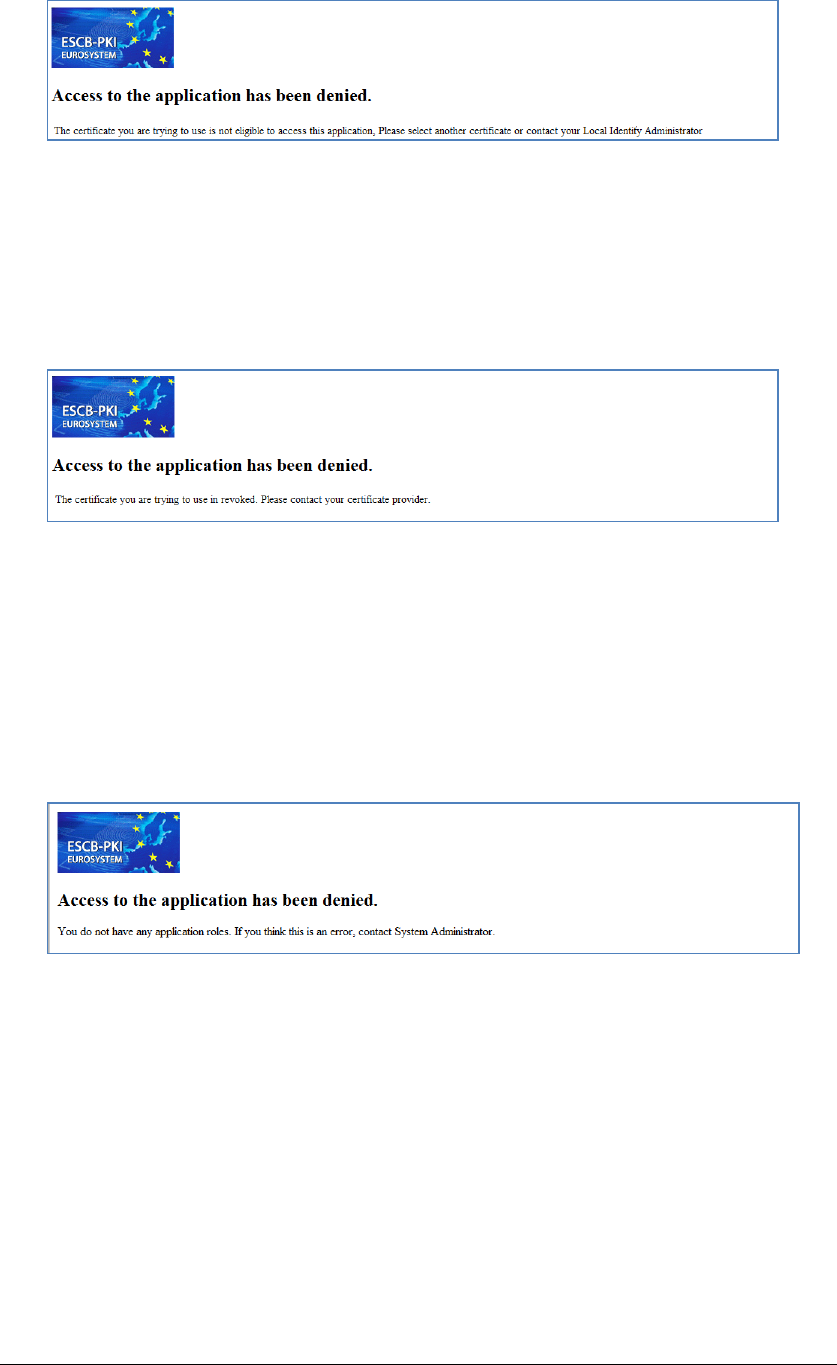
ECB - Unrestricted
Updated - ESCB-PKI - Common errors v.2.0.docx Page 11 of 21
2. IAM: Certificate not eligible
IAM error:
Reason:
You are trying to access to https://ra.pki.escb.eu/epkmain using a software certificate.
Action:
You must use an advanced certificate (smart card).
3. IAM: Revoked Certificate
IAM error:
Reason:
You are using a revoked (or suspended) certificate.
Action:
Verify you are using the correct certificate.
If your certificate is suspended you must reactivate it.
If your certificate is revoked you must request a new certificate.
4. IAM: No roles
IAM error:
Reason:
You are trying to access to https://ra-pki.escb.eu/epkmain but you have not been granted any role
in the ESCB-PKI system.
Action:
If you think you must have a role, please verify it looking for your Roles in the IAM IDM.
If you have being granted an ESCB-PKI role and you can’t access to the application, please contact
the IAM Coordinating service desk.
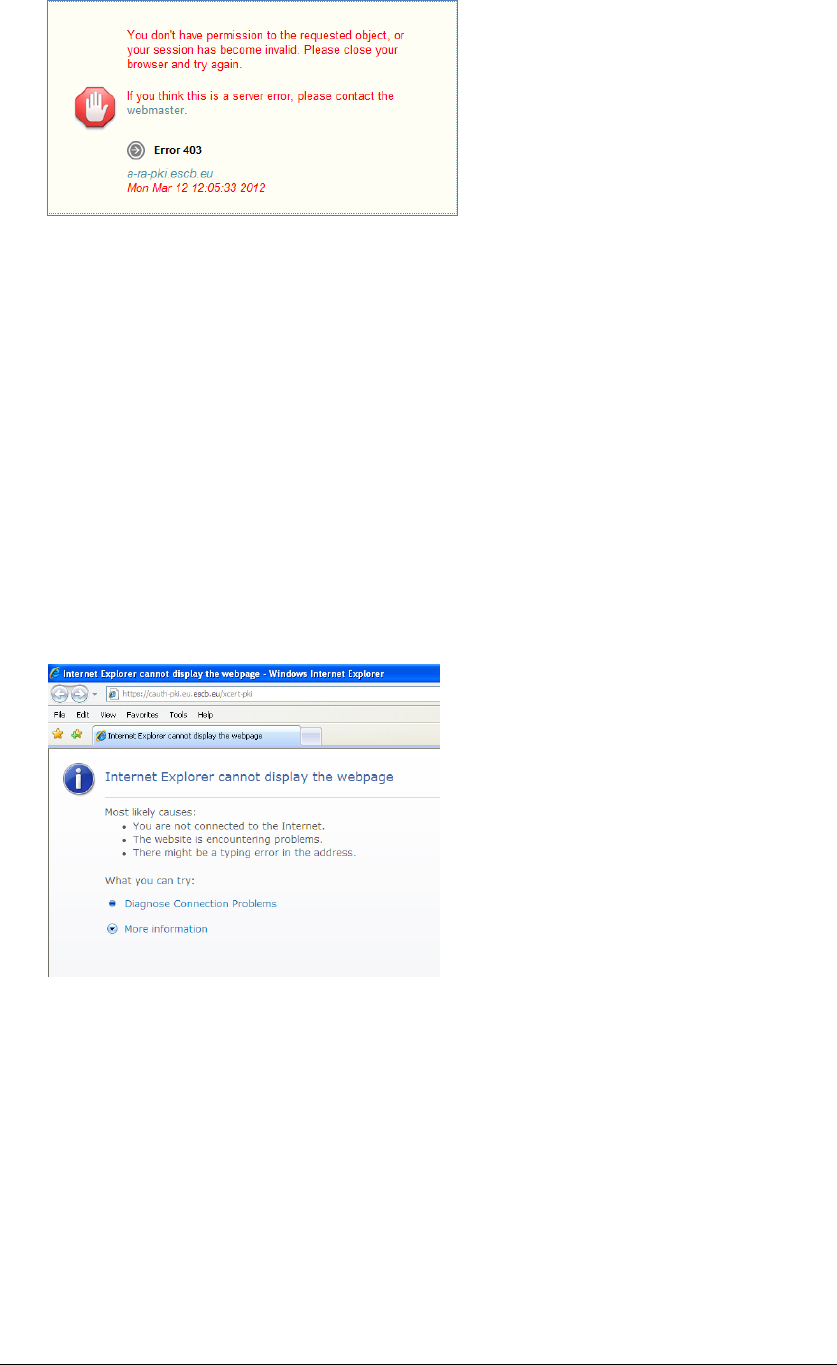
ECB - Unrestricted
Updated - ESCB-PKI - Common errors v.2.0.docx Page 12 of 21
5. ESCB-PKI session invalidated
ESCB-PKI error:
Reason 1:
You will receive this message if you have logged-off from the ESCB-PKI application and afterwards
you try to access to the application again from the same browser session.
Action 1:
Open a new browser session to access to the ESCB-PKI application. Another option is that you
close all the instances of your browser and open a new one.
Reason 2:
If you receive this error after having closed all the instances of your browser, as described above,
another reason of this error is that your user account have not been propagated correctly to the
ESCB-PKI system when it was created in the IAM infrastructure.
Action 2:
Contact your local Help Desk to communicate the error to the ESCB-PKI coordinating service desk.
6. Generic browser error
Reason 1:
The ESCB-PKI application has requested to present a client certificate to authenticate and you have
not got selected one
Action 1:
Obtain your authentication certificate and select it while accessing the application
Reason 2:
The PIN of your cryptographic token is locked
Action 2:
Unlock the PIN of your cryptographic token

ECB - Unrestricted
Updated - ESCB-PKI - Common errors v.2.0.docx Page 13 of 21
3. CERTIFICATE REQUEST REJECTED
7. Certificate request rejected
E-mail:
Dear ESCB-PKI user,
Unfortunately, your certificate request has been rejected because there is another request that has
not been completed yet.
Please complete the existing request or contact your Registration Officer to cancel it.
Reason:
You have requested new certificates but you already have another request in pending status
(status “ro-pending” or “user-pending”).
Action:
You may either complete the existing request or cancel it and afterwards make the new request.
8. New certificate request rejected
E-mail:
Dear ESCB-PKI user,
Unfortunately, your request for new certificates has been rejected because you already have got
valid certificates.
Please initiate a new request and select a more appropriate operation (e.g. renewal for certificate
expiration)
Reason:
You requested a “new certificate” and you already have a valid certificate. A valid certificate is an
“active” or “suspended” certificate.
Action:
If you need new certificates because your old keys:
Have been compromised; make a request indicating the reason: LOST CERTIFICATE.
Have been damaged; make a request indicating the reason: REPLACED TOKEN /
UNRECOVERABLE CERTIFICATE.
Are closed to expire; make a request indicating the reason: CERTIFICATE EXPIRATION.
9. Certificate renewal request rejected
E-mail:
Dear ESCB-PKI user,
Unfortunately, your request for the renewal of your certificates has been rejected because you
either have not got certificates or they are not about to expire.
For your information, ESCB-PKI certificates can be renewed only during their last 100 days of life.
Please initiate a new request and select a more appropriate operation (e.g. renewal for replaced
token or unrecoverable certificate)
Reason:
You have indicated in your request the reason: CERTIFICATE EXPIRATION, but certificates can only
be renewed during their last 100 days of life.
Action:
If you do not have any certificate, make a request indicating the reason: NEW CERTIFICATE.
If you need new certificates because your old keys:
Have been compromised; make a request indicating the reason: LOST CERTIFICATE.
Have been damaged; make a request indicating the reason: REPLACED TOKEN /
UNRECOVERABLE CERTIFICATE.
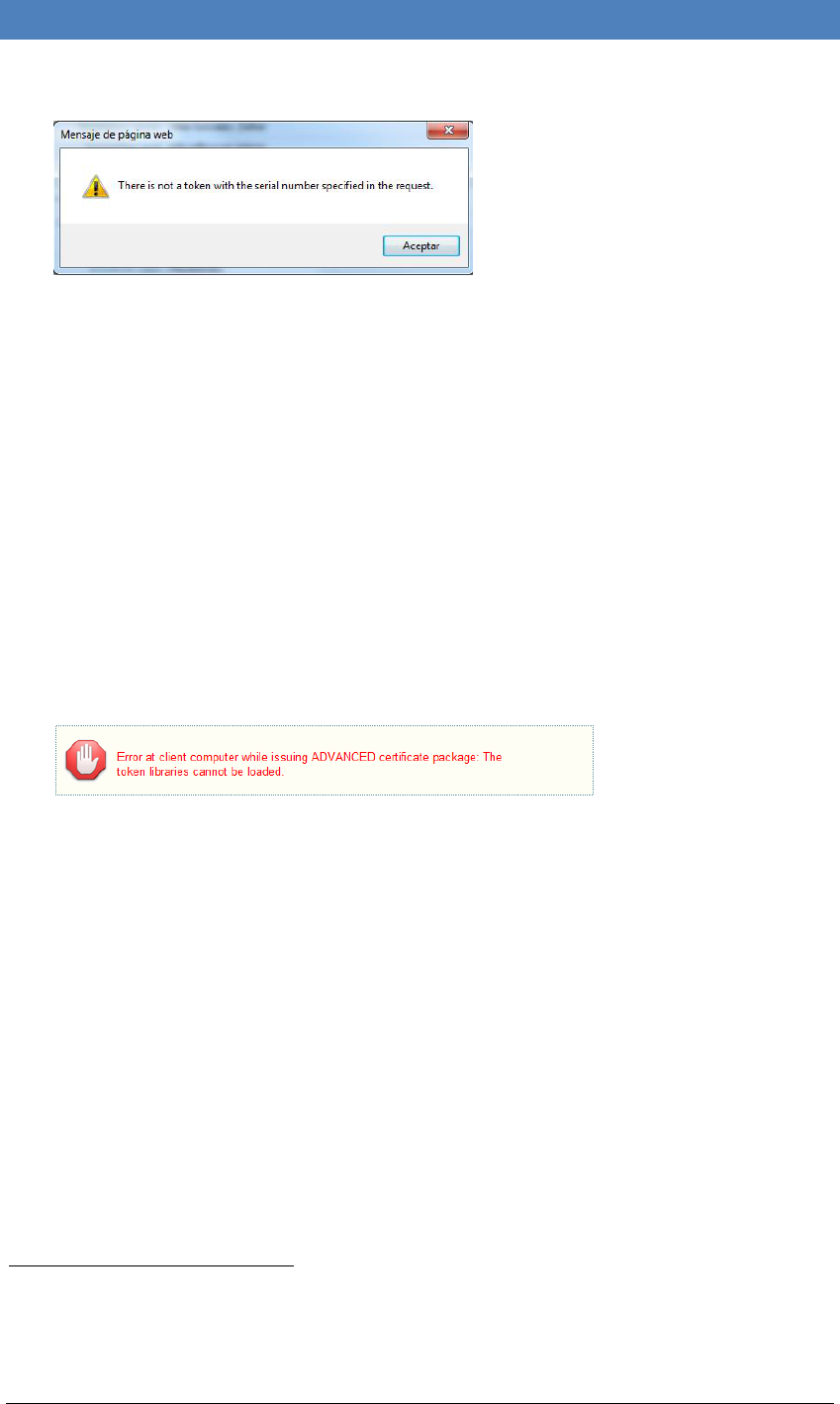
ECB - Unrestricted
Updated - ESCB-PKI - Common errors v.2.0.docx Page 14 of 21
4. CERTIFICATE GENERATION MOST COMMON ERRORS
10. There is not a token with the serial number specified in the request
EPK application error:
Reason:
You are in the process of generating advanced certificates and
a) The smart card is not correctly inserted in the reader.
b) The smart card used is not the one indicated in the request.
Action:
a) Verify that you have the smart card correctly inserted in the reader
b) If the serial number indicated in the request was mistaken, you can correct it. Take into
account that the modification of the serial number of the token can only be done if the status
of the request is still ro-pending. If the status of the request is user-pending
6
you must:
contact your Registration Officer to change back the request to the ro-pending status,
modify the SN of the request,
print and sign the new terms and conditions document, and
send it again to your Registration Officer.
11. Client error downloading certificates
EPK application error:
Reason:
Typically you will receive this message if you are using the wrong driver for your smart card reader.
Action:
Verify that you have the correct version of your driver (the last version valid for your operating
system) and try again.
6
This implies that you have already send the terms and conditions document with the wrong serial number
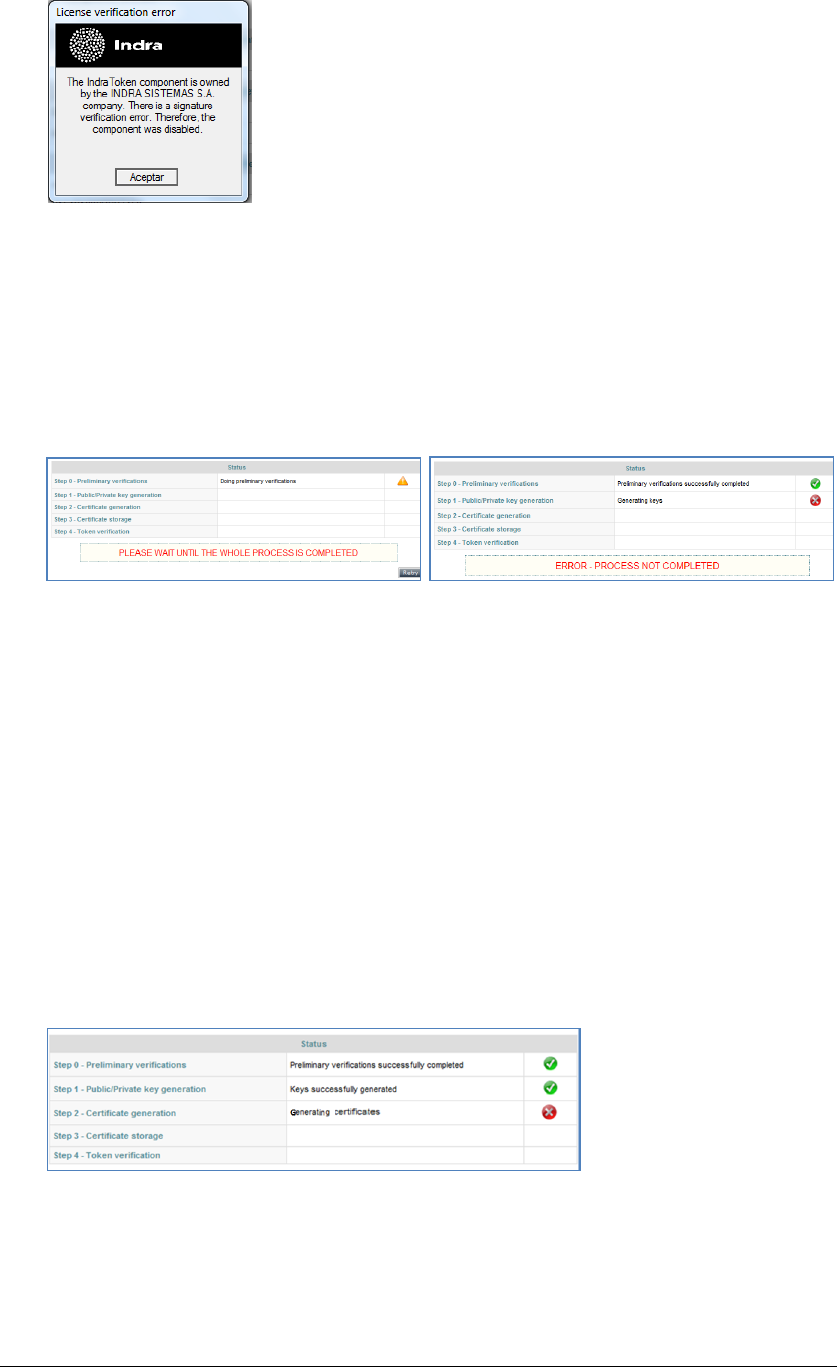
ECB - Unrestricted
Updated - ESCB-PKI - Common errors v.2.0.docx Page 15 of 21
12. License verification error
EPK application error:
Reason:
You will receive this message if you have not installed the ESCB-PKI production CA certificates.
Action:
Verify that you have installed the Production Root and Subordinate CAs certificates and try again.
Instructions to install the CAs are available in the ESC-PKI Website (Support tab).
13. Error generating the keys
EPK application error:
Reason:
Typically you will receive this message if
a) You have removed the token from the reader while the keys were being generated.
b) You are using an old version of the driver of your smart card reader.
Action:
a) Re-insert the card and try again.
b) Verify that you have the correct version of your driver and try again.
14. Error generating certificates
EPK application error:
Reason:
You shouldn’t receive this message. Should this happen, contact your local Help Desk to
communicate the error to the ESCB-PKI coordinating service desk.
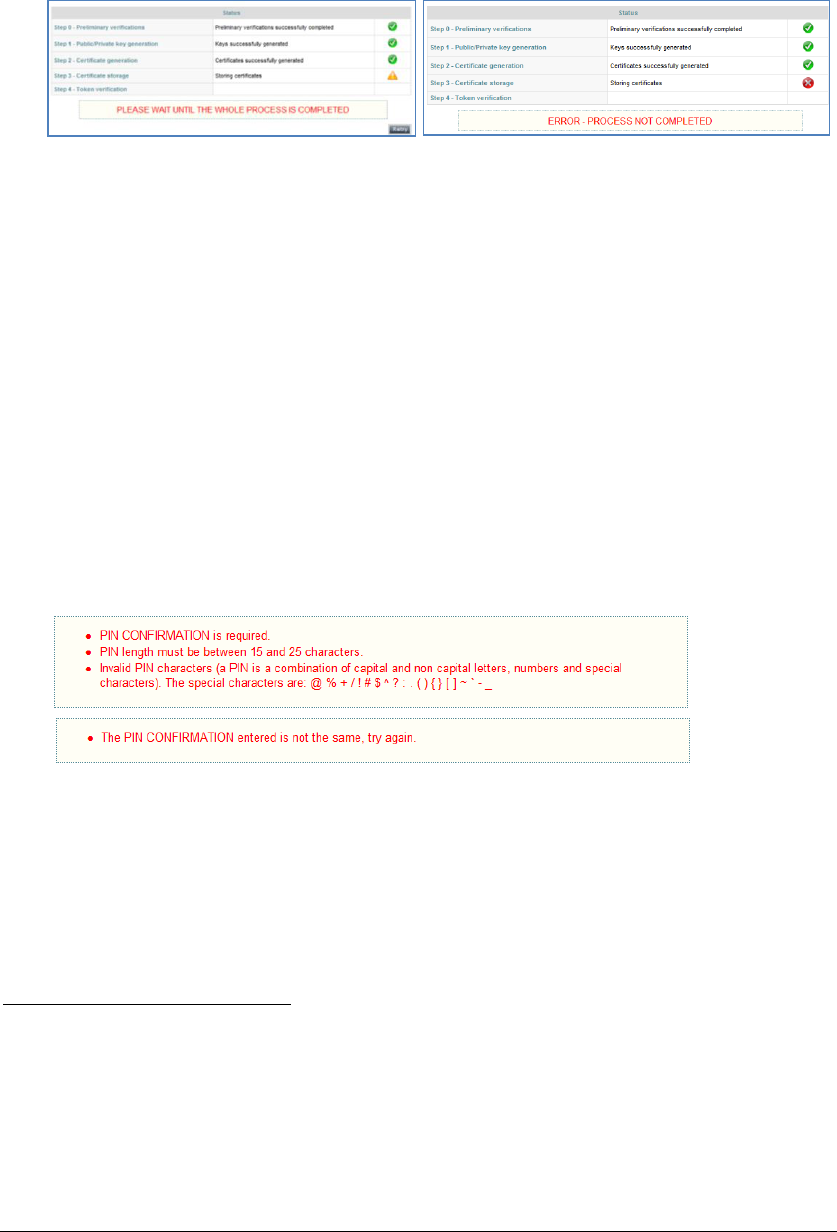
ECB - Unrestricted
Updated - ESCB-PKI - Common errors v.2.0.docx Page 16 of 21
Action:
If the certificates haven’t been generated (you didn’t receive an ESCB-PKI e-mail containing the
serial number of the certificate) you can try again. But, if the certificates have been issued you
must generate a new request with reason: LOST CERTIFICATE.
15. Error storing certificates
EPK application error:
Reason:
Typically you will receive this message if
a) You removed the token from the reader while the keys were being stored.
b) Your smart card has not enough space to store the certificates generated
7
.
Action:
a) Verify that you have the smart card correctly inserted in the reader and try again.
b) If your card is full you must clean your smart card (i.e. deleting keys and certificates you don’t
need) and then make a new request.
16. Invalid PIN downloading standard certificates
EPK application error:
Reason:
a) You have selected a PIN not compliant with the security rules.
b) The value entered in the PIN confirmation entry does not match the PIN.
Action:
a) Select and type a PIN compliant with the security rules:
PIN length must be between 15 and 25 characters
7
This is a very rare situation. Typically this could happen in the acceptance environment when you store multiple
certificates in the same card. The ESCB-PKI smart-card can store up to 11 certificates, taking into account that
initially 3 certificates are stored and that, in normal circumstances, 1 extra certificate will be added every 3 years
(the old encryption certificate is not deleted when renewing certificates), it will take more than 20 years to reach
the number of 11 certificates in the same smart-card.
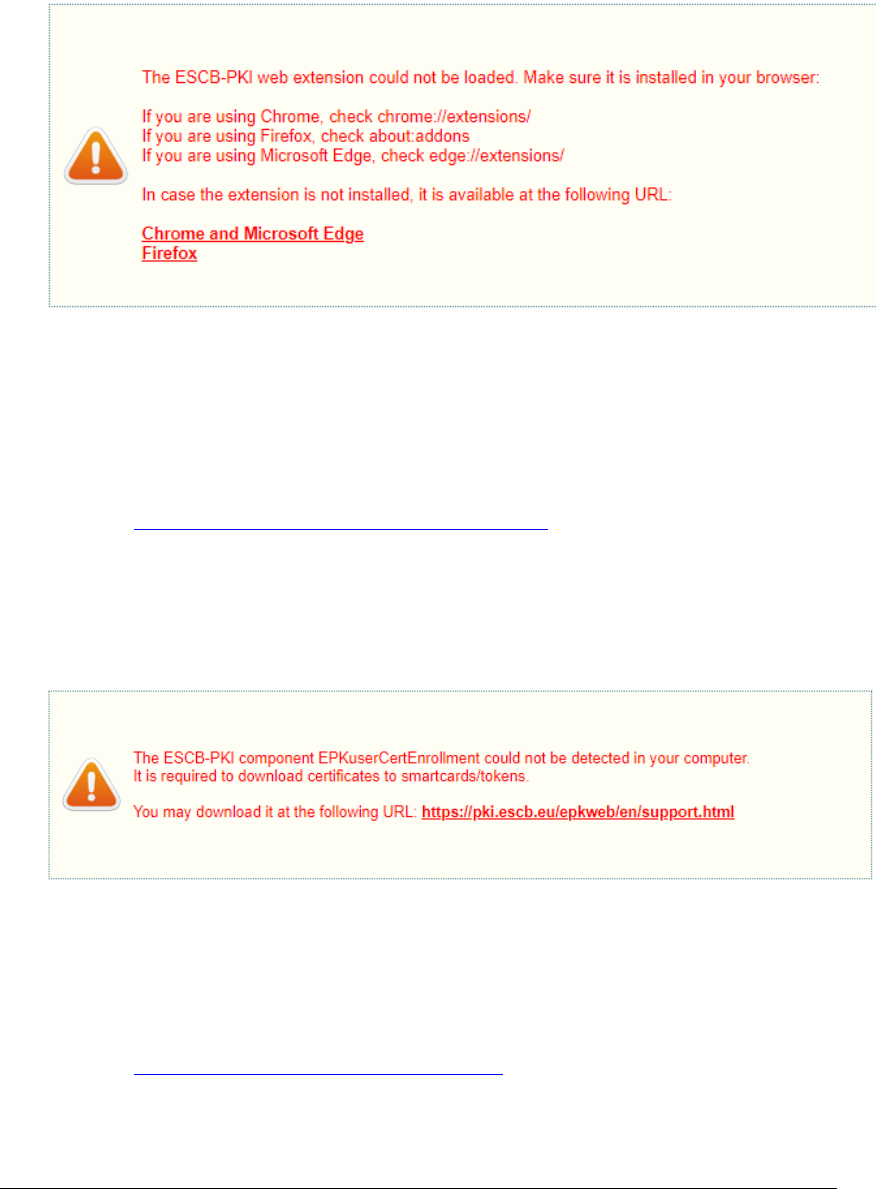
ECB - Unrestricted
Updated - ESCB-PKI - Common errors v.2.0.docx Page 17 of 21
PIN is a combination of capital and non-capital letters, numbers and special characters
(special characters are: @ % + / ! # $ ^ ? : . ( ) { } [ ] ~ ` - _)
b) Ensure that you type the same value in the PIN confirmation entry.
17. Web extension could not be loaded
EPK application error:
Reason:
a) You have accessed the ESCB-PKI RA application using a web browser where the web
extension is not installed or is disabled.
Action:
b) Follow the steps related to the web extension installation explained in the ESCB-PKI User
guide - Browser configuration, which may be downloaded from the ESCB-PKI portal support
area: https://pki.escb.eu/epkweb/en/support.html
18. EPKuserCertEnrollment component could not be detected
EPK application error:
Reason:
a) You do not have installed the EPKuserCertEnrollment software in your computer.
Action:
b) Follow the steps related to the Native Application installation explained in the ESCB-PKI User
guide - Browser configuration, which may be downloaded from the ESCB-PKI portal support
area: https://pki.escb.eu/epkweb/en/support.html
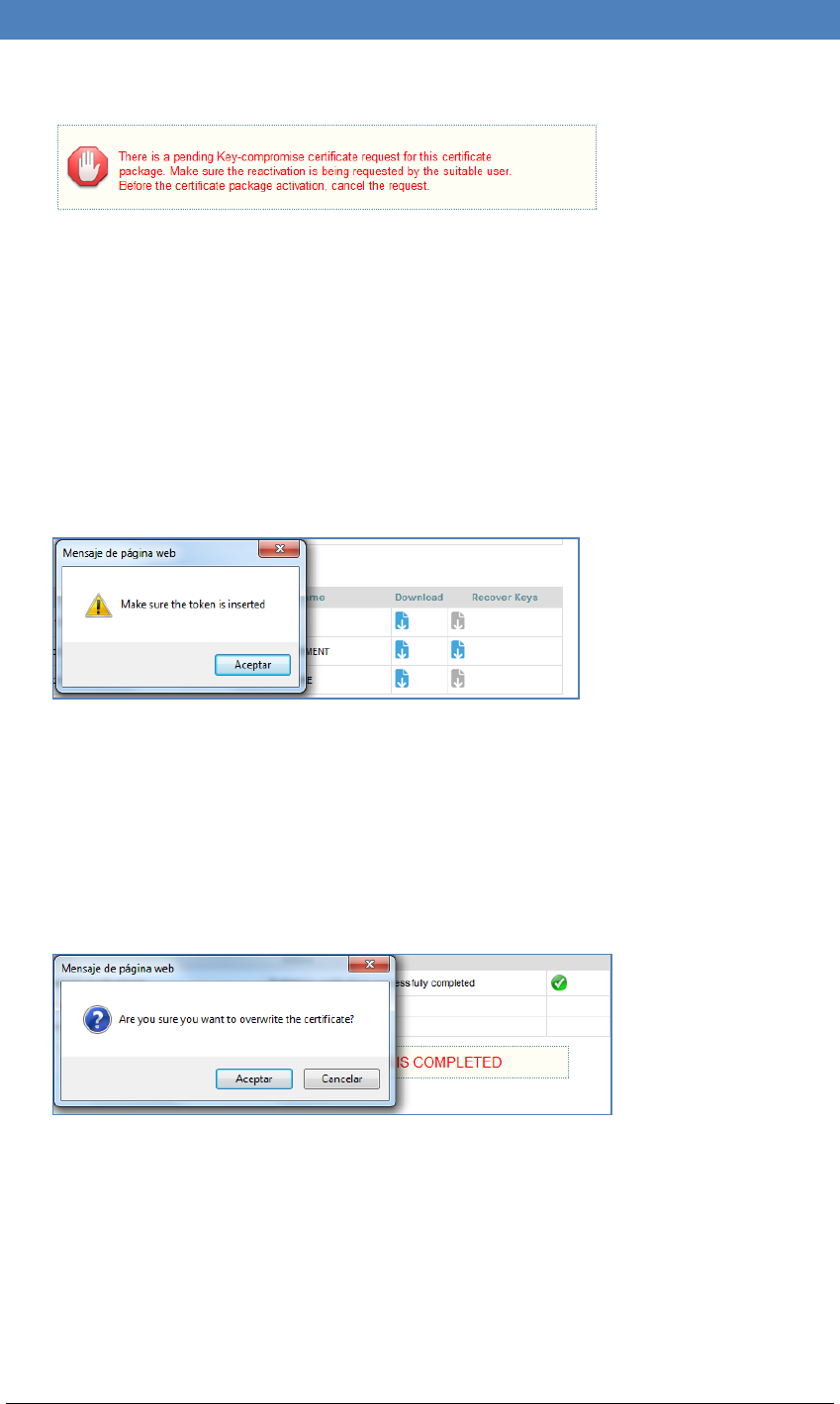
ECB - Unrestricted
Updated - ESCB-PKI - Common errors v.2.0.docx Page 18 of 21
5. CERTIFICATE MANAGEMENT MOST COMMON ERRORS
19. Error reactivating a certificate
EPK application error:
Reason:
You are trying to reactivate a suspended certificate and there is a pending request to replace this
certificate due to key compromise.
Action:
Ensure that the user requesting the certificate reactivation is the owner of the certificate. If he
really wants to reactivate the old certificate:
Cancel the pending request, and afterwards
Reactivate the certificate.
20. There is not a token in the reader
EPK application error:
Reason:
You selected the “encryption key recovery” option to recover old encryption certificate but you
have not inserted a smart card in the reader or the smart card is not correctly inserted.
Action:
Verify that you have the smart card correctly inserted in the reader and try again.
21. Duplicated encryption key
EPK application error:
Reason:
You have requested to recover an encryption key and you already have it installed in your token.
Action:
You can cancel the request or, if you want to replace the copy installed in your smart card because
it was damaged, you can continue.

ECB - Unrestricted
Updated - ESCB-PKI - Common errors v.2.0.docx Page 19 of 21
22. Error storing certificates
EPK application error:
Reason:
Typically you will receive this message when
a) You removed the token from the reader while the keys were being stored.
b) Your card has not enough space to store the certificates generated
8
.
c) You are using a smart card with a different serial number from the one selected in the
previous screen.
Action:
a) Verify that you have the smart card correctly inserted in the reader and try again.
b) If your card is full you must clean your smart card (i.e. deleting keys and certificates you don’t
need) and try again.
c) Insert the smart card with the correct serial number.
8
This is a very rare situation. Typically this could happen in the acceptance environment when you store multiple
different certificates in the same card. The ESCB-PKI smart-card can store up to 11 certificates, taking into account
that initially 3 certificates are stored and that, in normal circumstances, 1 extra certificate will be added every 3
years (the old encryption certificate is not deleted when renewing certificates), it will take 20 years to reach the
number of 11 certificates in the same smart-card.
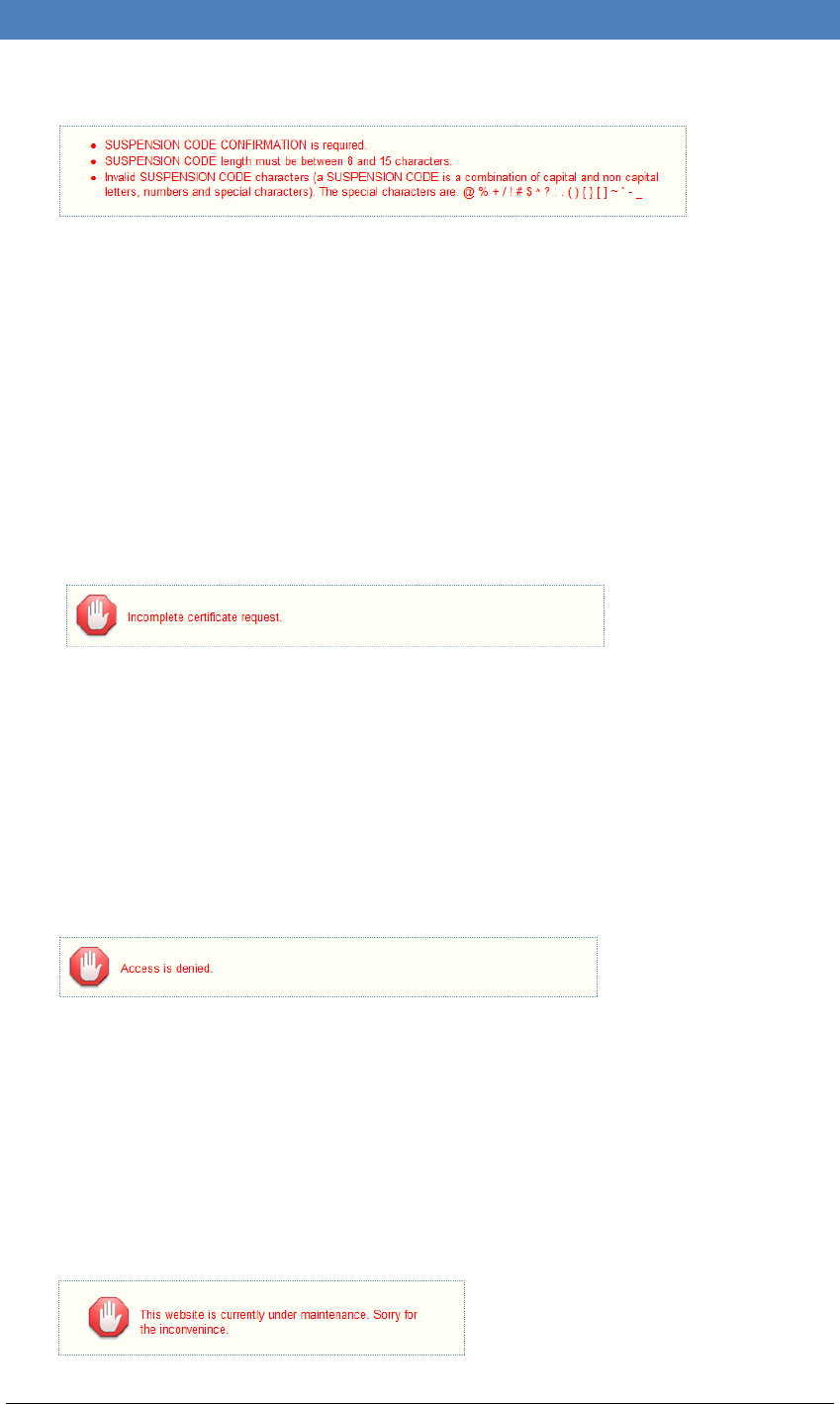
ECB - Unrestricted
Updated - ESCB-PKI - Common errors v.2.0.docx Page 20 of 21
6. OTHER COMMON ERRORS
23. Invalid suspension code
EPK application error:
Reason:
a) You have selected a code not compliant with the security rules.
b) The value entered in the code confirmation entry does not match the suspension code.
Action:
a) Select and type a code compliant with the security rules:
PIN length must be between 8 and 15 characters
PIN is a combination of capital and non-capital letters, numbers and special characters
(special characters are: @ % + / ! # $ ^ ? : . ( ) { } [ ] ~ ` - _)
b) Ensure that you type the same value in the suspension code confirmation entry.
24. Error downloading Terms and Conditions
EPK application error:
Reason:
You will receive this message when some data is missed in the request.
Typically, the information that could be missed is the serial number of your smart card in case of
advanced certificate requests.
Action:
Complete the missed information.
25. Access denied
EPK application error:
Reason:
You have requested an action and you are not authorized to perform it. In normal circumstances
you shouldn’t receive this error.
Action:
Try again, if the error continues contact your Help Desk to communicate the error to the ESCB-PKI
coordinating service desk.
26. System under maintenance
EPK application error:

ECB - Unrestricted
Updated - ESCB-PKI - Common errors v.2.0.docx Page 21 of 21
Reason:
The system has been stopped due to maintenance.
Action:
Try later. If the problem continues contact your Help Desk to communicate the unavailability to
the ESCB-PKI coordinating service desk.
27. Unexpected error
EPK application error:
Reason:
The application detected a non-controlled situation. In normal circumstances you shouldn’t
receive this error.
Action:
Try again, if the error continues contact your local Help Desk to communicate the error to the
ESCB-PKI coordinating service desk.
